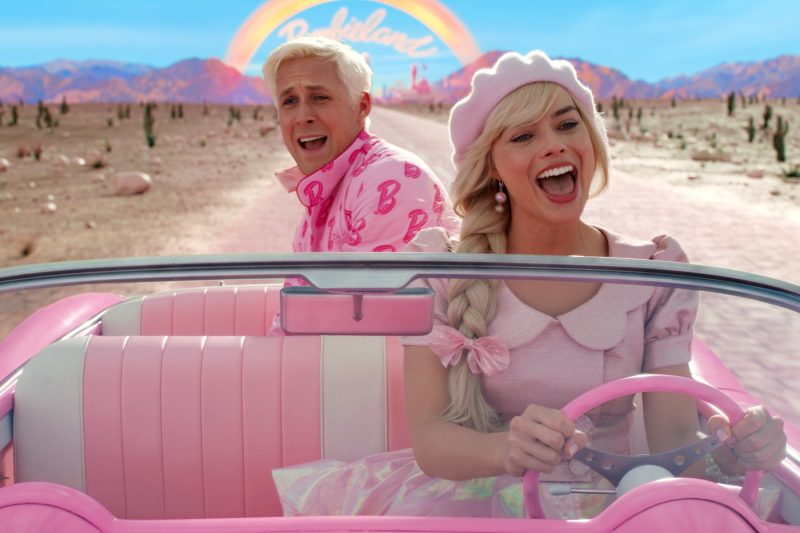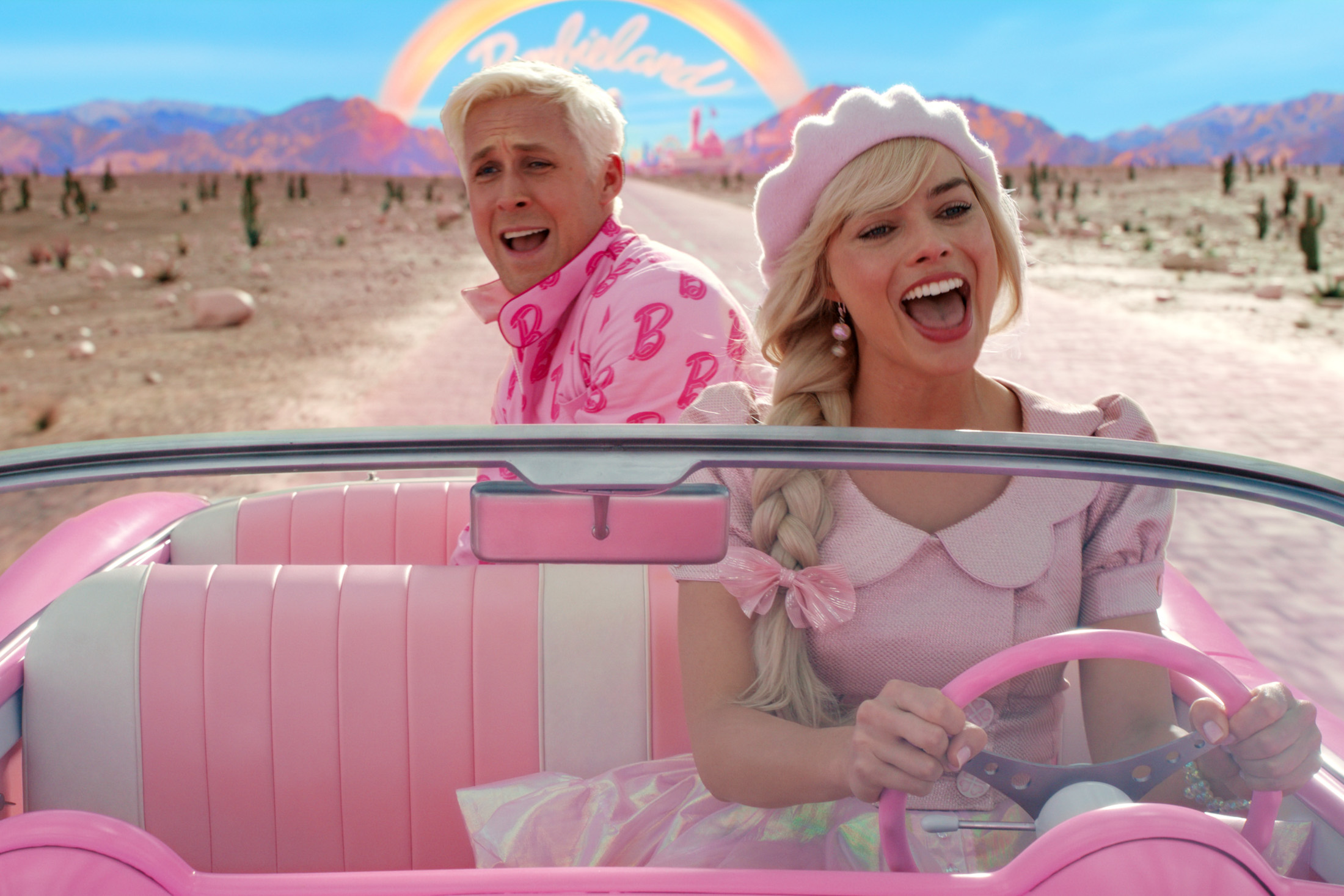
An iconic doll is mysteriously beset by disturbing thoughts in Barbie.
Life in Barbie Land is living in pink paradise. Every day is a sunny utopia filled with every possible pink pleasure. Women rule the land, but with a casualness bordering on an afterthought. Stress is something you do to a point, not experience internally. That is, until one day when Barbie (Margot Robbie) suddenly feels at odds with the status quo. Strange dark comments resonate among her usually rosy ramblings. Something is amiss in her world of all misses. The answer to her problem requires a trip to the Real World and a search for the little girl at the heart of all Barbie’s somber symptoms. It’s a journey into an unknown landscape that will challenge everything that she once held so sacred.
I didn’t play with Barbies as a kid. I grew up in a time when indoctrination of gender stereotypes was pretty baked into the parental formula. However, many of my similarly aged cousins were girls who did own vast swaths of Barbie’s seemingly endless wares (or perhaps wears). During those years, I’d often visit them armed with my latest G.I. Joe in tow. This gave Barbie the option of spending some time with a real man — one whose masculine beard you could actually feel and who could fondle her back with his Kung Fu Grip (™). I’m sure that Joe needed those often lascivious getaways as a welcome reprieve from the perfunctory, male-only battles that were his only lot in life at my house, or so I imagined. That’s as close as I ever got to experiencing the Barbie phenomenon, but it was close enough to understand the impact that all of these dolls had on young, gullible minds, including my own.
Writer/director Greta Gerwig (with additional writing from hubby Noah Baumbach) reimagines Mattel‘s most successful doll character and franchise by infusing it with a new take on its history and legacy. Those expecting to find a Judd Apatow-like laugh-a-minute romp through ridiculousness are in for a surprise. Greta don’t play that.
The visuals are everything that a fan could hope for. It’s a perfectly pink passage through every Barbie owner’s past. Pastel palettes dominate every perspective. Peppy pop songs pump up the party. It’s a pink-on-pink pile of persistent potpourri.
Robbie is the perfect choice as Barbie, and she plays it flawlessly. Rhea Perlman delivers a memorable, touching performance as Barbie’s creator Ruth Handler. Helen Mirren ties it all up in a nice little bow with well-timed narration, and then the preaching starts. It’s not that the messaging is poor. Quite the opposite. Every lesson that the film conveys is valid and important. The problem is the messenger. Barbie and her peers lecturing the audience on women’s values is akin to Joe Camel espousing the virtues of a healthy lifestyle.
Here’s pretty much all that you need to know: Mattel is fully behind this film, and it shows through nearly every minute of its running time. This is a commercial masquerading as a message film. Just watch as every outfit and object gets a freeze-frame moment complete with large, highlighted labels to let you know exactly what to shop for later. Gerwig can claim that it’s all about nostalgic callbacks. That may even be true in her mind, but I suspect that the folks at Mattel headquarters are thinking more about green than pink.
It does have its moments, but they’re every bit as thin as Barbie’s anorexic waist. Its most important scenes are ruined by its preceding premise. The most offensive one comes near the end when the film attempts to invoke a Field of Dreams-like moment. In that film, James Earl Jones‘s character suggests that baseball is the driving force behind the country: “America has rolled by like an army of steamrollers… But baseball has marked the time.” Gerwig similarly suggests that Barbie marked the time of the feminist movement. Bullshit. It may have trailed that effort, but only from a distance and only to avoid falling entirely out of lockstep with its determined, evolving customer base.
My wife was moved to tears by Perlman’s final speech as Handler. It reminded her of her own mother’s fight against the ever-present force of male expectation. She fought endlessly to maintain her identity. She swam upstream by working in a tech job and empowered her female friends to fight for their own freedoms. Her mother did that and should be lauded for it, but Barbie had absolutely nothing to do with it. The Barbie of her youth was the antithesis of a feminist icon focused almost entirely on vanity above all else. That Barbie callously reinforced every male-dominated attribute of womanhood, and Mattel still hasn’t fully adapted. This bias is clearly evident in the film. Curvy Barbie, as a character, barely gets acknowledged. Count out her lines, if that can even be stated as a plurality.
Gerwig’s Barbie is audacious in every meaning of the word. It might be seen by some as a quirky, often bizarre trip back in time, but it’s all a corporate façade. I want to see the Barbie film that Mattel doesn’t want made. This Barbie is all plastic.



